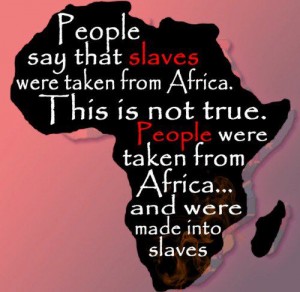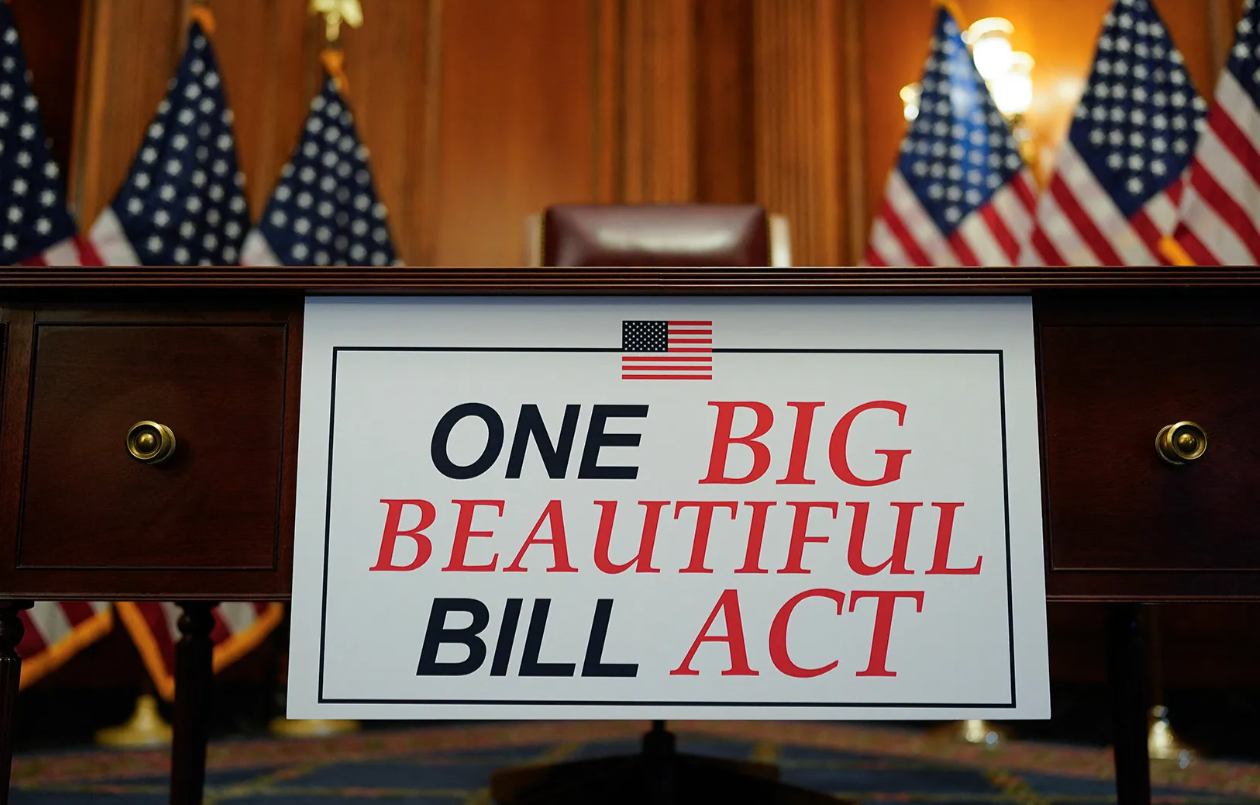(ThyBlackMan.com) Recently Steve Harvey, Charles Barkley and NBA hall of famer Karl Malone have all made flippant comments on the issue of slavery and its relevance to todays black America. Steve Harvey has since issued an after-the-fact pseudo clarification of what he meant. Neither Barkley nor Malone have said anything else about it.
Today, in the United States there is nothing more politically sensitive to talk about than the subject of slavery. There are a multitude of reasons why this is the case, which all point to the fact that it’s still an unhealed wound.
That being said, that these three successful Black men would intimate such a sentiment begs the question: just how important is the issue of slavery to today’s African American? To put it bluntly, does the fact that our ancestors were slaves yesterday still affect our ability to be successful today? There are several interesting statistics that need to be taken into account.
Poverty
According to the U.S. Census Bureau in 1959 over 50% of Black families lived in poverty. Today that percentage has dropped to under 30%. While this is a good thing, the argument can be made that over 20% is still too high.
Historically black poverty rates have been double that of whites. Unfair hiring practices and lack of educational opportunities were far more restrictive in 1959 than they are today. It doesn’t mean that opposition still doesn’t exist; it simply means that, to Black Americans, it was more pervasive over 50 years ago. So, the question is this? Does the institution of slavery have something to do with black poverty being so high, today?
The verdict: no.
Education
It is well established that education is the key to breaking the chains of poverty. That being said there are some interesting statistics that accompany this reality in the black community.
In 1940 barely 1% of African Americans had earned a bachelor’s degree from a University. Undoubtedly this had nothing to do with the intellectual capacity of black people, but rather it had everything to do with economics and racism. Today that number has grown to slightly over 20%, which is a vast improvement.
Ironically 60% of the states with the lowest percentage of blacks with bachelor’s degrees or higher were former slave states. Conversely of the states boasting the highest rate of black degree holders, only 10% are former slave states.
At first glance this may look to be an obvious reason to claim a victory for the ravenous psychological effects of slavery. But, if you look more closely at the numbers something interesting occurs. The one former slave state that is a top state for black academics is Georgia which happens to be in the top 5 of states with the highest population concentrations of black folks. Even moreso the region with the absolute highest population concentration of blacks is The District of Columbia, which happens to share the same geographic region of two states that have the highest level of black intellectuals.
So, while there is quite a bit of room for improvement in this area, black folks, by and large, appreciate and tend to take advantage of educational opportunities. Is this a remnant of slavery?
The verdict: yes. (Because slaves knew what NOT having an education meant. This is why prestigious historically black universities are concentrated throughout former slave states and territories)
Crime
In the early part of the nineteenth century a little over 5% of the black population was incarcerated. Throughout the 20’s, 30’s, 40s, and 50’s that number didn’t increase a substantial amount. The first noticeable increase began to occur in the 1960’s. It wasn’t until the mid to late 1970’s and early 80’s that those numbers began to explode.
Why?
It has been well documented that towards the end of the Vietnam War the proliferation of illicit drugs began to flood the urban areas of major metropolitan cities. Black men like Frank White, portrayed by Denzel Washington in the movie American Gangster, were one of the multitudes that grew in power and wealth. Under President Ronald Reagan the federal government chose to combat this scourge by increasing the jail sentencing laws and backing more aggressive law enforcement.
The aftermath of these policies, coupled with inadequate housing, has placed a lot of black communities squarely in the middle of the crosshairs. And while many pundits repeatedly imply that an innate genetic predisposition is to blame, the fact is that what we often see coming from these communities is woefully predictable responses to inhumane conditions. The bottom line is these behaviors do not occur in a vacuum.
So, is the fact that crime rates in many black communities is double that of white communities an evidence of the ravages of slavery?
The verdict: no.
The bottom line is this: the effects of slavery cannot be understated. But it is equally both lazy and disingenuous to say that slavery is the devil behind every bush as well as saying that its institution in this country has left no remnant fallout. To intimate that slavery prevents forward progression is an insult to every successful black American, of which there are many. Every American needs to learn the full ugly truth about this institution. Until then the debates and the misconceptions will never end.
Staff Writer; Steven Robinson
May also visit this talented writer over at; http://noroomtowiggle.wordpress.com/.

















Blacks take advantage of education opportunities? Maybe a minority of them do, but appreciation for education is extremely low in the black community. A black person that studies to hard and gets good grades is seen as uppity by his black classmates, as if he is submitting to white people by caring about his education.
Slavery is the ultimate excuse that’s really pathetic, sorry, and played out. Back in the 60’s, if it wasn’t black so-called leaders spewing about slavery and racism on television, it was the black people in every neighborhood I lived in. What blacks need to realize is that black people born after slavery ended were not slaves. White people born after slavery ended were not slave owners. If blacks feel so oppressed by whites, then why have blacks been going to their oppressors for jobs, benefits, foods, and clothing? If anything, its black people who are confused. On the one hand, you want the “white man” to give you all you want, yet you will still whine and complain about something.
If slavery still exist, then why are black men hiring white lawyers, managers, etc. What I noticed throughout the years is the most notorious blacks who cry slavery and racism have white people within their circle. Black people are not and having been suffering from slavery. A large % of blacks are suffering from their own lack of morals, knowledge, unity. It has absolutely nothing to do with slavery, racism, nor the white race. Look in the mirror or at your so-called leaders. That’s where you will see and find the answer.
And you all can stop hating on Steve Harvey. There are lots of people of different races who don’t give a damn about slavery. He’s not the only person who feels that way. You wanna know why? Nowadays, people have jobs, families to take care of, and other responsibilities to handle. Something that happened hundreds of years ago don’t fit into the equation. Nobody can control what happened during slavery, especially since they weren’t even there.
Another Great article, but I have to respectfully disagree with some of what you said. The slave mind continues to stay with us because we haven’t dealt with it. Just because you’re so called educated, doesn’t mean you don’t have the after effects. This is one of the reasons why as a community, we still can’t come together. Whether it be because of class, skin color, education, or something else, we are still affected by the residue of slavery. But I do agree that we can’t let that stop us from making progress.
Black Unity is the solution, 3ufirst.com is the plan.
If we keep vote democrat, we will always be crippled.
I have read some of your articles and have been impressed that you have taken on some pretty controversial topics.
As far as Steve Harvey goes, yes, he’s a comedian who has figured out the formula to success: keeping it simple so that simple minds can understand. I don’t know the man personally, therefore I cannot comment on who he is.
You are correct, many of our people are very much like little sheep, easily led by false shepherds. That being said I do find hope that there’s a community within our ranks that is looking for a higher plateau of expression that doesn’t have anything to do with the likes Beyoncé or Lil’ Wayne, who, once again, have figured out that keeping it simple for simple minds is the key to success.
Keep on writing and I’ll continue reading your pieces as well. And, above all, if you think I’m completely off my rocker on something that I write about, challenge me and call me out. Vigorous and passionate debate is how we all get better. I’ll do the same with you.
My compliments on your article. I am a writer for this site so check out some of my articles plz.
As for Steve Harvey, he is not an expert. He is a comedian and a sell out. He has helped in the effort to dog out African-American men and his payoff was a talk show, family feud and a book. I am a family ad relationship counselor and former detective. I can say with certainty that his book is simply the words of a biased sell out of an untrained male comedian. And his talk show is pretty much the same.
Our community needs to stop looking to comedians as role models. We are probably the only ethnic group who does that. Am I hating on Steve? No just being honest. You see what looking up to another comedian (Cosby) has gotten us.
Slavery is a legitimate reason for so many people who still think and act like slaves. Read my article on this site’s home page which deals with just that, Lifting Our People Up Out Of The Slavery Mindset